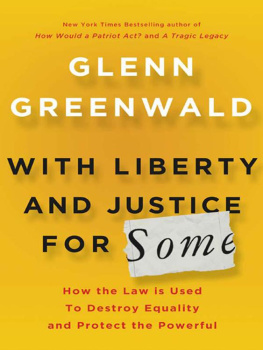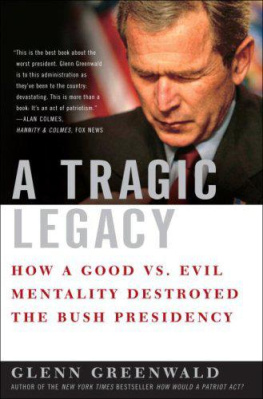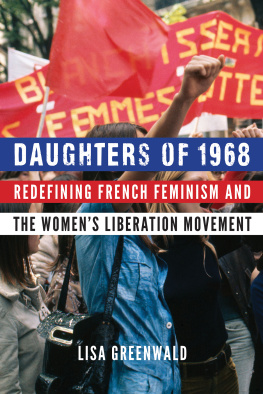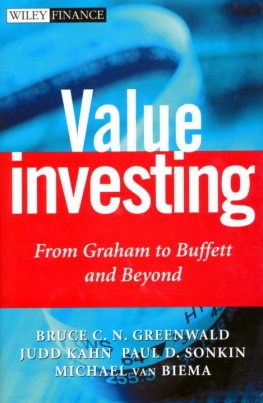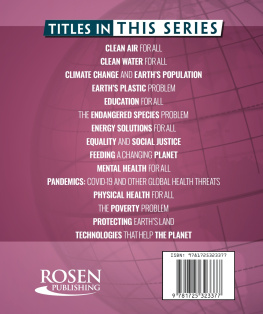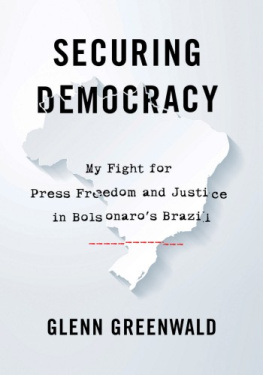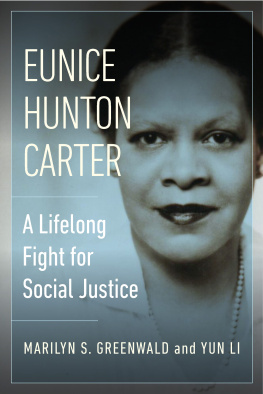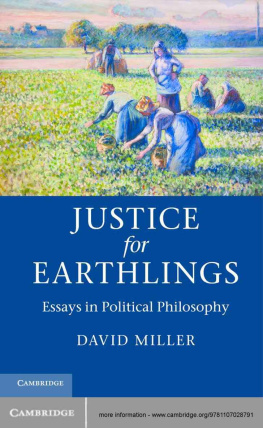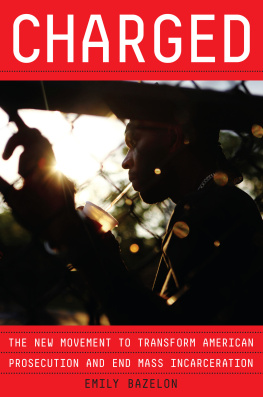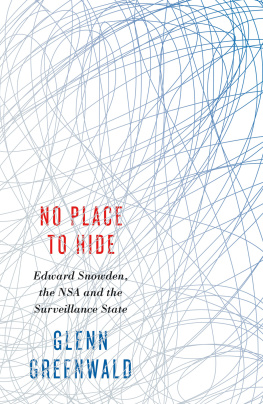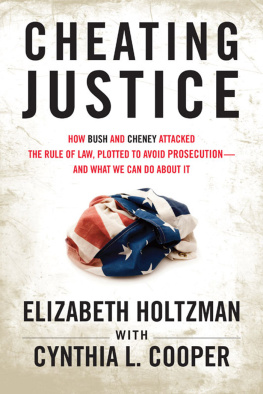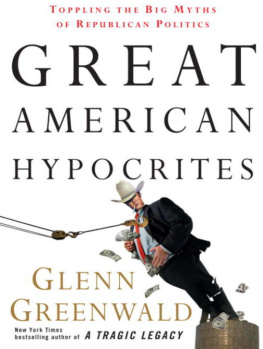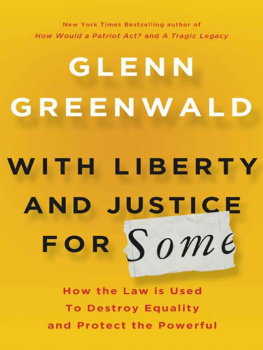Introduction
As a litigator who practiced for more than a decade in federal and state courts across the country, Ive long been aware of the inequities that pervade the American justice system. The rich enjoy superior legal representation and therefore much better prospects for success in court than the poor. The powerful are treated with far more deference by judges than the powerless. The same cultural, socioeconomic, and demographic biases that plague society generally also infect the legal process. Few people who have had any interaction with the justice system would dispute this.
Still, only when I began regularly writing about politics did I realize that the problem extends well beyond such inequities. The issue isnt just that those with political influence and financial power have some advantages in our judicial system. It is much worse than that. Those with political and financial clout are routinely allowed to break the law with no legal repercussions whatsoever. Often they need not even exploit their access to superior lawyers because they dont see the inside of a courtroom in the first placenot even when they get caught in the most egregious criminality. The criminal justice system is now almost exclusively reserved for ordinary Americans, who are routinely subjected to harsh punishments even for the pettiest of offenses.
The wiretapping scandal of 2005 provides a perfect illustration. In December of that year, the New York Times revealed that officials in George W. Bushs administration were eavesdropping on Americans telephone calls and e-mails without warrants or judicial oversight: a felony punishable by up to five years in prison and a ten-thousand-dollar fine for each offense. The lawbreaking could not have been clearer, yet virtually nobody in the political and media class was willing to call those acts criminal, much less to demand legal investigations or prosecutions.
This was a depressingly familiar pattern for several decades and became particularly pronounced over the last one. Americas political and business establishment presided over a series of extraordinary crimes that brought the United States political disgrace and financial ruin: the creation of a global torture regime; the systematic plundering by Wall Street, leading to the 2008 economic crisis; the serial obstruction of justice by high-ranking political officials; the fraudulent home foreclosures by the nations largest banks. Yet in almost every instance, the perpetrators were shielded from any legal consequences. As these events clearly demonstrate, Americas political culture not only provides strategic advantages in the legal system to political and financial elites, but now actually grants them immunity when they knowingly break the law. This licenseawarded by the same political class that created the worlds largest and most merciless prison state for its poorest and most powerless citizensrepresents not just a departure from the rule of law but a fundamental repudiation of it.

The central principle of Americas founding was that the rule of law would be the prime equalizing force, the ultimate guardian of justice. The founders considered vast inequality in every other realm to be inevitable and even desirable. Some would be rich, and many would be poor. Some would acquire great power, and many would live their entire lives virtually powerless. A small number of individuals would be naturally endowed with unique and extraordinary talents, while most people, by definition, would be ordinary. Due to those unavoidable circumstances, the American conception of liberty was not only consistent with, but premised on, the inevitability of outcome inequalitythe success of some people, the failure of others.
The one exception was the rule of law. When it came to the law, no inequality was tolerable. Law was understood to be the sine qua non ensuring fairness, a level playing field, and a universal set of rules. It was the nonnegotiable prerequisite that made all other forms of inequality acceptable. Only if everyone was bound to the same rules would outcome inequality be justifiable.
So central is this founding principle that most Americans absorb it by osmosis via numerous clichs: All are equal before the law. Justice is blind. No man is above the law. We are, in the words of John Adams, a nation of laws, not men. For Adams, either the law is supreme in all cases, or the arbitrary will of rulers is. Adams and the other founders viewed the preeminence of law over individualsall individualsas the only protection against the tyranny that American colonists had launched a revolution to abolish. For that reason, American political liberty was always inextricably bound to the notion that law reigns supreme.
It would be difficult to overstate the essential place of the rule of law in the American political tradition. A principal grievance against King George III was his unilateral power to vest in himself and those he favored the right to act outside of the law. The goal of the American Revolution was to replace this arbitrary will of the monarch with unbending equal application of law to everyone. Where, say some, is the King of America? Thomas Paine, the great American revolutionary, asked in his 1776 pamphlet Common Sense . His answer:
Let a crown be placed thereon, by which the world may know, that so far as we approve of monarchy, that in America the Law is King. For as in absolute governments the King is law, so in free countries the law ought to be King; and there ought to be no other.
Alexander Hamilton did not often see eye to eye with Paine, but on this he heartily agreed. The instruments by which [government] must act are either the AUTHORITY of the laws or FORCE, he wrote in 1794. If the first be destroyed, the last must be substituted; and where this becomes the ordinary instrument of government there is an end to liberty! Like Paine and Hamilton, Adams, in his 1776 Thoughts on Government, put the rule of law at the top of his list of core principles for a free and legitimate government: The very definition of a republic is an empire of laws, and not of men.Good government is an empire of laws.
That last line may at first glance appear simple and even trite, but it contains a critical insight. The supremacy of law is not just one among many instruments of good government; it is good government itself. The converse is equally true: in the absence of the rule of law, good government cannot be said to exist.
To be sure, there may be exceptional situations where the rule of men might produce better outcomes than the rule of law. A truly magnanimous tyrant, a benevolent dictator, might conceivably lead to more positive results than a regime of unjust laws rigidly applied. Historians can point to emperors who exercised absolute power while advancing the interests of their subjects and the territories they ruled. Nevertheless, such societies should not be confused with good government, dependent as they are on the fortuitous emergence of an unrestrained leader who is both well-intentioned and relatively immune from the corrupting effects of power (and, even less plausibly, immune from the absolutely corrupting effects of absolute power). A country that prospers by vesting absolute power in a leader who happens to be benevolent could just as easily come under the control of a malevolent leader the next time around. And when that happens, as at some point it surely will, a society without the rule of law will have no means of redress short of violent revolution.
Whats more, even the most well-intentioned leader will eventually abuse his power if he is not constrained by law. Indeed, and somewhat paradoxically, a rulers belief in his own virtue actually renders abuses of power more likely, since he can rationalize all manner of arbitrary and capricious measures: I am good and doing this for good ends, and it is therefore justifiable . Power exercised corruptly inevitably degrades and destroys even genuinely benevolent intent.

